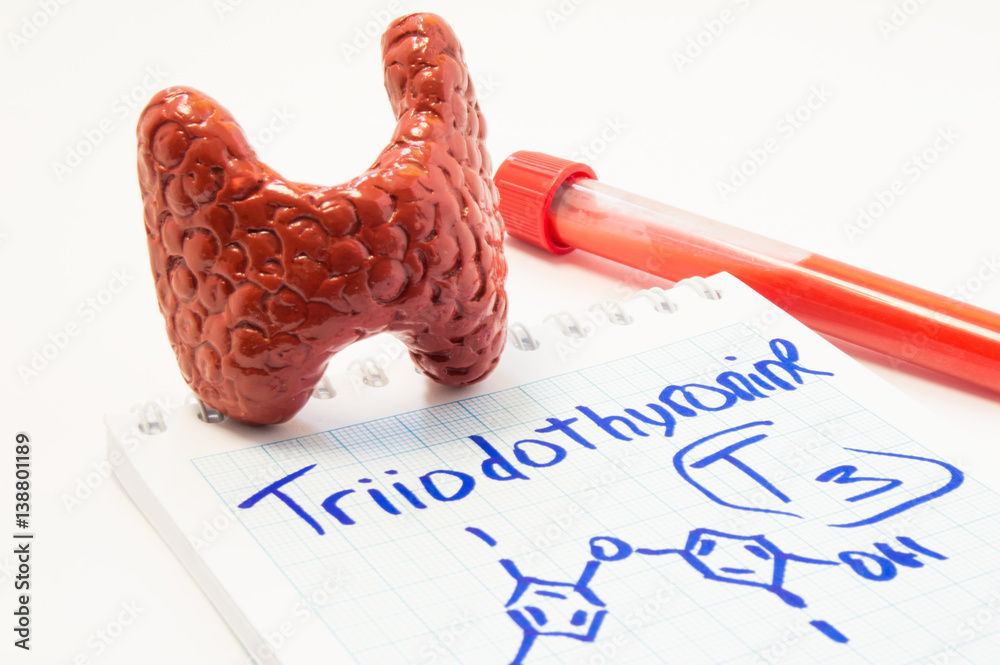Managing Hyperthyroidism Effectively
Know all about hyperthyroidism, including symptoms, causes, and how to affects you. Learn effective ways to manage hyperthyroidism.


Introduction
Hyperthyroidism is a condition where your thyroid gland produces too much thyroid hormone, speeding up your metabolism. While it can feel overwhelming, with the right care and lifestyle adjustments, you can successfully manage it effectively and live a healthy life.
Understanding Hyperthyroidism
Your thyroid is a small, butterfly-shaped gland in your neck that controls your metabolism—how your body uses energy. When it becomes overactive, it releases excess thyroid hormones (T3 and T4), leading to symptoms like:
Rapid heartbeat or palpitations
Unexplained weight loss even with normal eating
Increased appetite
Nervousness, anxiety, or irritability
Tremors (shaky hands)
Sweating more than usual
Fatigue or muscle weakness
Difficulty sleeping
Frequent bowel movements
Thinning hair or brittle nails
Common Causes of Hyperthyroidism
1. Graves’ Disease
An autoimmune disorder where the immune system mistakenly attacks the thyroid, causing it to overproduce hormones.
2. Toxic Nodules
Lumps in the thyroid that produce excess hormones.
3. Thyroiditis
Inflammation of the thyroid temporarily increases hormone levels.
4. Excessive Iodine Intake
Too much iodine from diet or medications can trigger hyperthyroidism.
How Hyperthyroidism Affects Your Health?
If left untreated, hyperthyroidism can lead to complications like:
Heart problems (irregular heartbeat, high blood pressure)
Bone weakening, called osteoporosis, is Due to calcium loss
Eye issues in Graves’ disease, causing bulging eyes or vision problems
Thyroid storm (a rare but life-threatening condition with severe symptoms.
Consult endocrinologist for Personalised Advice.
Effective Ways to Manage Hyperthyroidism
1. Medical Treatments
Your doctor may recommend one or more of these treatments:
Antithyroid Medications like Methimazole, Propylthiouracil
These slow down hormone production.
Beta-blockers like Propranolol, Atenolol
Help control rapid heartbeat, tremors, and anxiety.
Radioactive Iodine Therapy
Destroying overactive thyroid cells may lead to hypothyroidism later.
Surgery (Thyroidectomy)
Removal of part or all of the thyroid (used in severe cases).
2. Dietary Adjustments
What you eat can help manage symptoms:
Eat Calcium & Vitamin D-rich foods like milk, yoghurt and leafy greens to protect bones.
Include Selenium & Zinc-rich foods like nuts, eggs, seafood to support thyroid function.
Avoid excess iodine-rich foods like seaweed, iodised salt, and some supplements.
Limit caffeine & sugar as they can worsen anxiety and heart palpitations.
3. Lifestyle Changes
Exercise moderately, do gentle activities like walking or yoga help reduce stress.
Managing stress through Meditation, deep breathing, and relaxation techniques can help.
Get enough sleep as fatigue worsens symptoms, so prioritise rest.
Protect your eyes if you have Graves’ disease. Use lubricating eye drops and sunglasses.
4. Regular Monitoring
Since hyperthyroidism can change over time, regular check-ups and blood tests (TSH, T3, T4 levels) are essential to adjust treatment as needed.
When to See a Doctor?
If you experience:
Rapid or irregular heartbeat
Severe weight loss without trying
Extreme fatigue or muscle weakness
Vision changes like bulging eyes and irritation
Hyperthyroidism is manageable with the right care. If you suspect symptoms or need guidance, Apollo 24|7 makes it easy to consult an endocrinologist or book thyroid function tests from home.
Final Thoughts
Living with hyperthyroidism requires knowing the causes, understanding hyperthyroidism and making some adjustments, like medications, dietary adjustments, and lifestyle changes, but with proper treatment and self-care, you can lead a healthy, active life.
Consult endocrinologist for Personalised Advice.
Consult endocrinologist for Personalised Advice.

Dr. E Prabhakar Sastry
General Physician/ Internal Medicine Specialist
40 Years • MD(Internal Medicine)
Manikonda Jagir
Apollo Clinic, Manikonda, Manikonda Jagir
(150+ Patients)
Dr. Kiran Kumar Pasam
Endocrinologist
12 Years • MBBS, MD(General Medicine), DM (Endocrinology)
Hyderabad
Dr Kiran Kumar Pasam, Hyderabad
(25+ Patients)

Dr. Arunava Ghosh
General Physician/ Internal Medicine Specialist
10 Years • MBBS,MD(GENL.MED.),DM(ENDOCRINOLOGY)
Kolkata
VDC Clinic, Kolkata

Dr. Shruthi B
Endocrinologist
20 Years • MBBS,MD ( GEN MED) DM (ENDOCRIONOLOGY)
Bengaluru
Apollo Clinic, JP nagar, Bengaluru

Dr. Chaithanya R
Internal Medicine Specialist Diabetologist
16 Years • MBBS, MD Internal Medicine, Fellowship in Diabetes(UK), CCEBDM(PHFI)
Bangalore
Apollo Clinic Bellandur, Bangalore
(75+ Patients)


